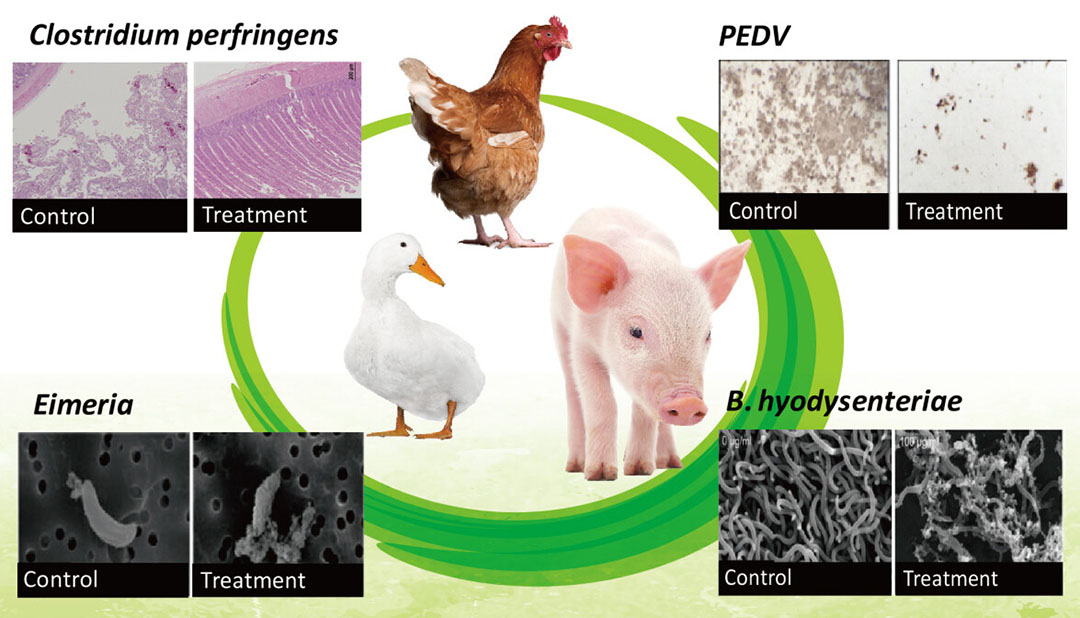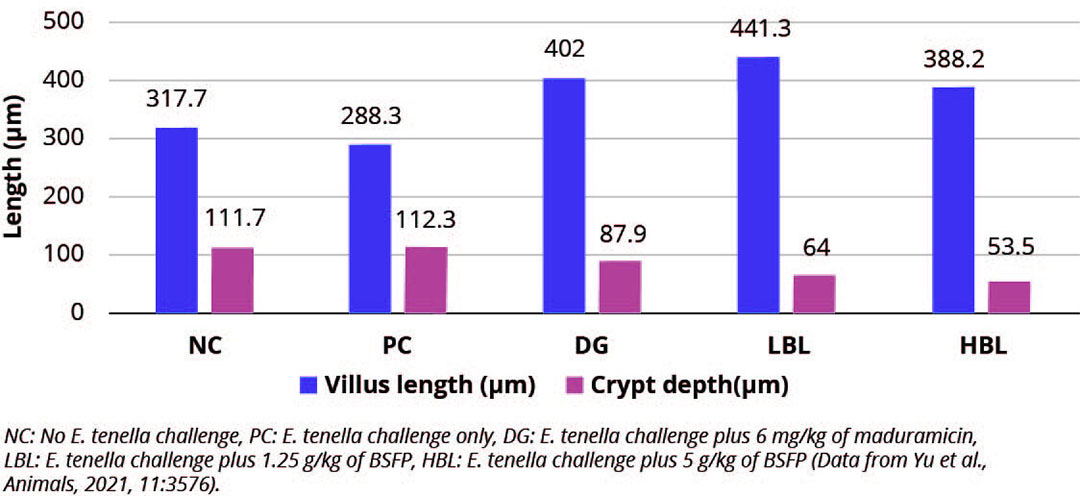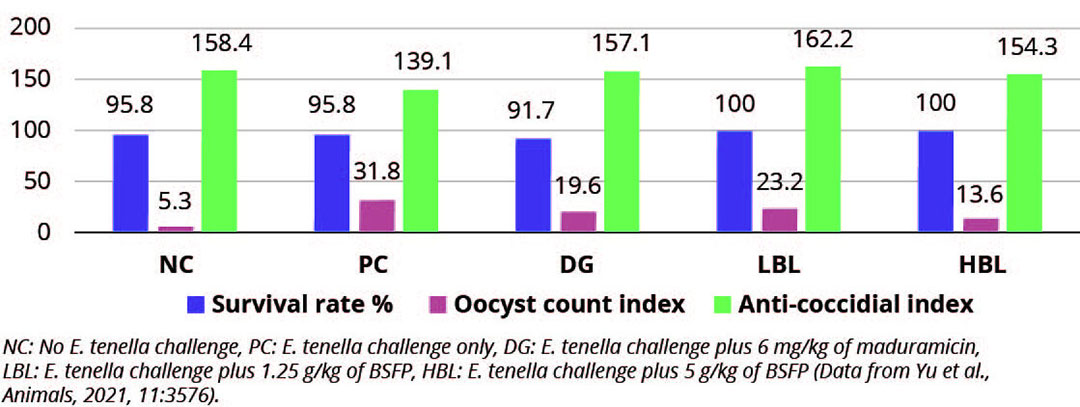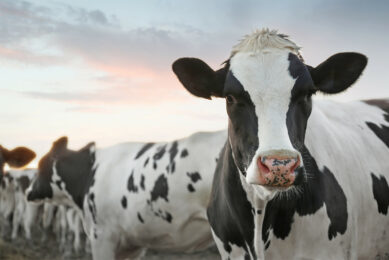Optimising gut health in poultry with BSFP

Poultry farmers are looking for feed additives to boost the immune system and improve GIT health in the post-antibiotic era. Bacillus species-based fermented products are an influential and effective alternative to optimise gut health.
Part of the Gut Health 2022 Special
Bacillus spp. are gram-positive bacteria with rod-shaped endospores that generate aerobic or facultative anaerobic bacteria. Many species in the genus, such as Bacillus subtilis and Bacillus licheniformis, exhibit an extensive assortment of physiological abilities and capabilities that enable them to flourish in any environmental condition, including the chicken gut. Use of Bacillus spp. in broiler chickens has been shown to enhance growth performance. Bacillus spp. can synthesise antimicrobial cyclolipopeptides. Bacillus spp. can be produced by liquid-state and solid-state fermentation. Compared to liquid-state fermentation, Bacillus species-based fermented products (BSFP) produced by solid-state fermentation not only contain Bacillus spores, but also has antimicrobial cyclolipopeptides. Beneficial effects of Bacillus species-derived antimicrobial cyclolipopeptides on animal diseases have been widely reported (see image). Furthermore, many studies have shown that BSFP in broiler diets can prevent disease and improve growth performance by modulation of gut health.
Enhancing immune system
The addition of Bacillus spp. spores or BSFP to chicken feed can improve production metrics in several ways, such as competitive exclusion by increasing lactic acid-producing bacteria abundance. In addition, Bacillus-based probiotics are increasingly being employed to keep broilers healthy by activation of specific and non-specific immunological responses. Bacillus-based probiotics can modify the intestinal profile of cytokines in broilers, triggering monocyte and macrophage production and resulting in an enhanced immunological response. Supplementing the broilers feed with Bacillus spp. spores cause the larger lymphoid organs to create precursor cells for adaptive immune systems and natural killer cells. Bacillus spp. spores enhance phagocytosis in chickens. Bacillus spp. spores can protect poultry from stress, as seen by lower cortisol and TNF-α levels post Clostridium perfringens infection. BSFP increase the cellular immune responses in broilers challenged with C. perfringens by upregulating the inducible nitric oxide synthetase, interferon γ, and interleukin 1β gene expression.

Improving gastrointestinal tract health
Bacillus-based probiotics act against pathogens including E. coli, C. perfringens, and Salmonella by regulating the intestinal barrier through tight junction protein activation and phagocytosis, preventing substantial pathogen invasion in a probiotic approach. Bacillus spp. spores have been suggested to encourage C. perfringens mortality, removing or mitigating its toxins causes necrotic enteritis in poultry. The antimicrobial cyclolipopeptides derived from BSFP may cause death or suppress C. perfringens growth in vitro and increase goblet cell members’ villus height in the ileum, and restore villus damage/loss by C. perfringens. In the ileum, Bacillus spp. supplemented products encourage the number of goblet cells and villus height, increasing the overall surface area for nutrients absorption. BSFP can increase mucin and tight junction protein gene expression in the gut of broilers. Mucin and tight junction proteins then create an impenetrable intestinal barrier to microbial attack. Through higher expression of mucin and tight junction protein, poultry feed supplementation with BSFP enhances intestinal clearance of C. perfringens and Salmonella.
BSFP in controlling coccidiosis in broilers
Coccidiosis is the most common intestinal diseases in poultry caused by the species Eimeria. The annual estimated economic loss in the poultry production sector is USD$3 billion caused by coccidiosis due to decreased growth performance and high mortality rate. Eimeria spp. has become a more potent threat to poultry production due to considerable drug resistance strain worldwide. Therefore, the prospection of BSFP in controlling coccidiosis in the poultry domain is an unmet need.
Figure 1 – Effect of Bacillus species-based fermented products (BSFP) on the caecal morphology of broilers challenged with Eimeria tenella.

A recent study has demonstrated that BSFP-derived antimicrobial cyclolipopeptides are able to inhibit Eimeria oocyst sporulation and disrupt sporozoite morphology in vitro. BSFP supplementation increases the length of villus and reduce the depth of crypt depth in the cecum of E. tenella challenged broilers compared with the E. tenella challenge and control group (Figure 1).
Figure 2 – Effect of Bacillus species-based fermented products (BSFP) on the anti-coccidial activity of broiler challenged with Eimeria tenella.

BSFP also improve the survival rate of E. tenella challenged broilers (Figure 2). The oocyst count index in broilers increase in E.tenella challenge only as compared to the control group. Supplementation with BSFP in combination with E. tenella challenge decrease oocyst-count index in broilers. Importantly, the anti-coccidial index in the BSFP-fed broilers is increased and its anti-coccidial effects are similar to the anticoccidial drug (maduramicin).
Substitute for antibiotics
Bacillus species show antimicrobial activity against pathogens and able to inhibit Eimeria oocyst sporulation and disrupt sporozoite morphology in vitro through the production of antibacterial cyclic lipopeptide. BSFP from solid-state fermentation containing probiotics and antibacterial cyclic lipopeptide, called “surfactin”, can improve growth performance, prevent disease, and modulate gut microbiota in domestic animals. Summarised, BSFP might provide an alternative source for preventing pathogens or a substitute for antibiotics.
References are available on request.
Join 13,000+ subscribers
Subscribe to our newsletter to stay updated about all the need-to-know content in the dairy sector, two times a week.






